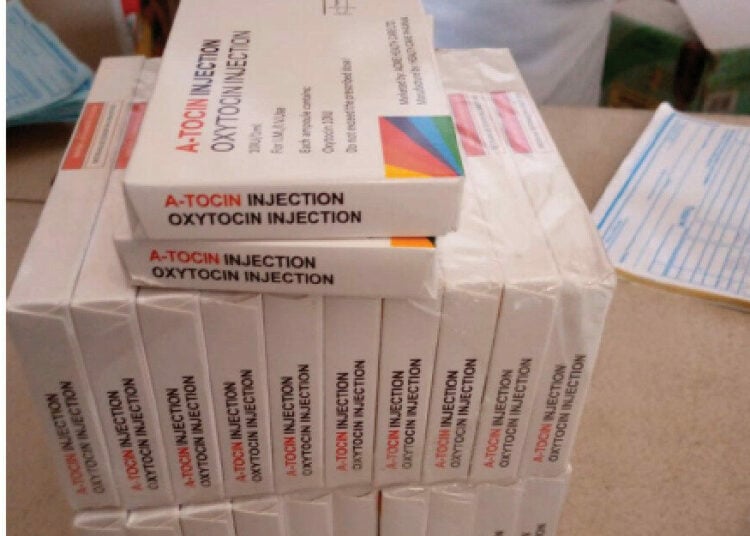Every mother deserves a safe delivery. But across many parts of the country, a hidden threat is endangering that right: counterfeit oxytocin injections.
Often referred to as a “life-saving drug,” oxytocin plays a critical role in maternal healthcare. It’s used by doctors and midwives to induce labor, strengthen contractions, and, most importantly, prevent severe bleeding after childbirth , one of the leading causes of maternal deaths worldwide. For countless women, this single drug can mean the difference between life and death.
In recent years, falsified or substandard oxytocin injections have increasingly surfaced in hospitals and pharmacies , particularly in low and middle-income countries. These counterfeit drugs often contain little to no active ingredient, leaving women dangerously unprotected at the most critical moment of childbirth.
Without effective oxytocin, postpartum hemorrhage excessive bleeding after delivery can escalate rapidly, leading to preventable complications, long-term health issues, or even death. The presence of these fake medicines undermines trust in the healthcare system and puts countless lives at risk.
Why Falsified Oxytocin Is Dangerous
Ineffective In Labor: Without genuine oxytocin, labor may be prolonged, leading to complications for both mother and baby.
Failure To stop bleeding: Postpartum hemorrhage is one of the top killers of new mothers. Fake oxytocin means bleeding continues unchecked.
Loss Of Trust: Families who lose loved ones may blame doctors or hospitals, when the real problem lies with fake medicines in the supply chain.
Silent Spread: Unlike expired drugs that look suspicious, falsified oxytocin often looks identical to the real product making it harder to detect.
Why This Problem Exists
Poor Regulation – In some countries, drug supply chains are not strictly monitored.
Storage Issues – Oxytocin is heat-sensitive and must be kept refrigerated. When stored incorrectly, even real oxytocin loses effectiveness, behaving like a fake.
Exploitation – Criminal networks produce falsified medicines because of weak oversight and high demand.
How To Protect Mothers
Stronger Health Systems: Communities and policymakers must push for tighter drug regulation and better monitoring of medical supplies.
Cold-Chain Enforcement: Oxytocin should always be stored and transported in a cold environment to maintain potency.
Health worker vigilance: Midwives and doctors should report ineffective oxytocin batches to authorities.
Community Awareness: Families should choose trusted hospitals and advocate for mothers’ right to safe, quality medicines.
Antenatal Care: Regular clinic visits improve the chances of giving birth in well-equipped facilities where drug safety is prioritized





